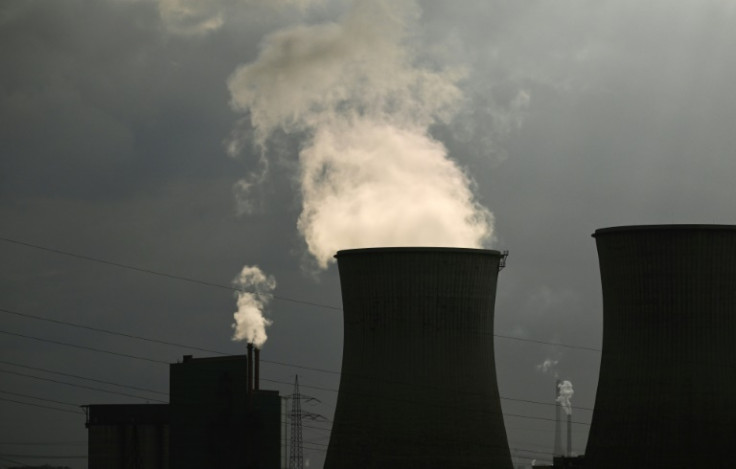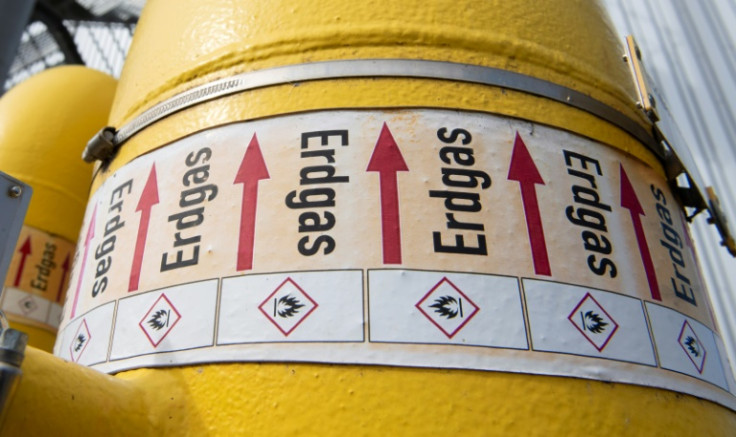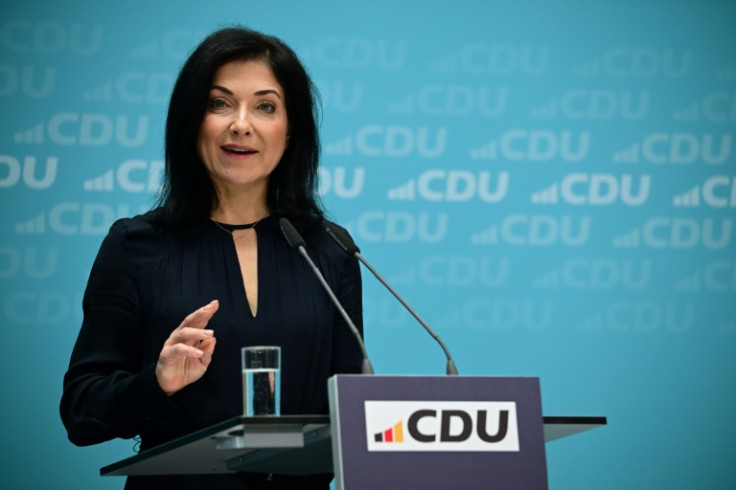German Gas Drive Fuels Fears Of Climate Backsliding

Germany's conservative-led government has launched a drive to rapidly build more gas-fired power plants, fuelling fears about climate policy backsliding and sparking unease even within its own ranks.
Chancellor Friedrich Merz's coalition has made reviving Europe's struggling top economy a priority and argues that reliable and affordable energy supplies are crucial for the country's manufacturing titans.
But critics charge the bid to boost fossil fuel production is ideologically driven and highlights a shift away from green policies under the new government.
Merz leads a coalition that includes his centre-right CDU party and junior partners the centre-left SPD -- but without the Greens, who were in the last administration.
The economy ministry, headed by Katherina Reiche of the CDU, is vocally backing a target of building new gas plants with about 20 gigawatts of power production capacity by 2030.
Reiche, a former energy company executive, has argued it is important to "move very quickly" towards building the plants "in order to maintain a high level of security of supply in our country".
The goal is to have a backup source of power in times there are shortfalls of renewables, which sometimes happens when the sun is not shining or there is not enough wind.
Supporters say more supply is needed in the short term as nuclear power has been switched off in Germany and coal should follow suit in the coming years.
They argue natural gas -- which emits greenhouse gases but is less polluting than coal -- can bridge the gap until enough renewables come online.
Under German climate law, the share of renewable electricity consumed in the country should rise to 80 percent by 2030. It stood at around 55 percent in 2024, according to the federal environment agency.
Earlier this month, the government agreed gas production could begin off a North Sea island in an area straddling the border with the Netherlands, with a Dutch company planning to extract the fossil fuel, sparking condemnation from environmentalists.
Plans to build more gas plants are not new, and the previous government also wanted to expand capacity, but the new targets are around double those of the past.
Underlining the new government's changing priorities, Reiche's ministry has been renamed the "Ministry for Economic Affairs and Energy" -- under the Greens in the previous, SPD-led coalition, it was called the "Ministry for Economic Affairs and Climate Action".
She also appeared at one point to question Germany's legally binding target of achieving greenhouse gas neutrality by 2045, sparking tensions with SPD environment minister Carsten Schneider.
An economy ministry spokesman told AFP that Reiche "stands by" the current climate goal.
"The government is committed to achieving these targets with the political measures at its disposal -- while maintaining Germany's position as an industrial location," he said.
The Greens have regularly attacked Reiche while more than 380,000 people have so far signed a petition by campaign group Campact warning her policies risk "a dramatic setback in climate policy".
But criticism is emerging even within the conservatives.
The Climate Union, grouping CDU and other conservative politicians, has warned subsidies for new gas plants could push up power costs, the Handelsblatt financial daily reported.
Energy think tank Agora Energiewende estimates that only a maximum of 10 gigawatts of extra gas plants would be needed by 2030 to supplement other power sources.
"This will ensure security of supply -- even if coal-fired power plants are taken off the grid as planned," Philipp Godron, the head of the group's power programme, told AFP.
Meanwhile, questions remain over how quickly the plants can be built, while the European Commission, the EU's executive arm, still needs to give its approval.
The economy ministry spokesman told AFP that talks with the EU for putting out tenders for a "significant portion" of the plants were "well-advanced".
He also stressed that any new gas-fired plants must be "decarbonised in the long term", for example by switching them to green hydrogen, which was necessary "in view of the decarbonisation of the electricity system and compliance with EU law".


© Copyright AFP {{Year}}. All rights reserved.





















